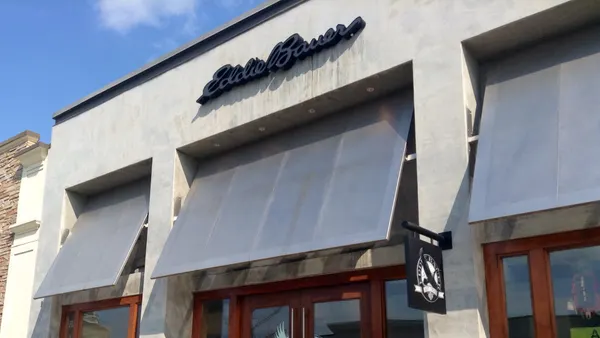Dive Brief:
- Bed Bath & Beyond has called a special meeting to seek shareholder approval to execute a reverse stock split. If approved, fundraising from the move “will enable us to continue rebuilding liquidity to execute our turnaround plans and better position the company financially,” CEO Sue Gove said in a statement.
- Offering a reverse stock split will “appeal to a broader range of investors to generate greater investor interest in the company,” Bed Bath & Beyond said in a March 17 regulatory filing. But the move also carries the risk of failing to increase the price of the company’s common stock.
- The company said it wants to raise $1 billion through stock offerings, stock-related proceeds and by drawing $100 million from a first-in-last-out loan. A February stock offering generated a $225 million cash infusion, which steered the distressed retailer away from a bankruptcy filing.
Dive Insight:
A reverse stock split can generate money by increasing the trading price of shares. But it also carries the risk of loss for investors.
Bed Bath & Beyond stock was trading at around 85 cents at the time of publication.
A stock split consolidates existing shares into fewer but hopefully higher-priced shares. Bed Bath & Beyond will determine the reverse stock split ratio in the range of 1-for-5 to 1-for-10. The board will decide the final ratio, the company said in a statement.
Bed Bath & Beyond said the stock split “would not have any effect on the actual or intrinsic value of our business or a shareholder's proportional ownership in the company,” and that the board reserves the right to delay or abandon the stock split.
But the company’s distress has affected its market performance and presence. News of the reverse stock split caused share prices to fall. The company's shares reportedly face imminent removal from the small-cap S&P 600 index. Earlier this year, Bed Bath & Beyond missed but later made an interest payment on its $1 billion-plus debt.
The company said last week it plans to amend its recent plans to purchase convertible preferred stock. This change will give the company up to $100 million more of additional funding by April. This action would give the company a cumulative total of $460 million in funding. Earlier this month, Bed Bath & Beyond had raised $360 million of its $1 billion goal, Reuters reported.
“The funding we have raised over the past month has supported our ongoing operations and enabled us to begin reinvesting in valuable inventory to fulfill customer demand,” Gove said in a statement. “We will continue to consider thoughtful and essential actions that can enhance our business operations and accelerate results for customers, associates, suppliers and shareholders over the long term.”
Bed Bath & Beyond’s turnaround plan includes substantially reducing its store footprint. Bed Bath & Beyond wants to operate about 360 of its namesake stores, down from about 771 last year. The company is also closing its entire chain of about 50 Harmon beauty stores.
But Wedbush analysts last month warned that the company remains distressed. Failure to secure all of the funding it’s seeking or an inability to successfully implement its turnaround plan “could put the company back on bankruptcy’s doorstep,” the analysts said.















